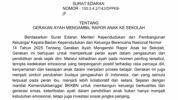Philippines Set to Follow Indonesia’s Lead with Raw Mineral Export Ban
MANILA, RAKYAT NEWS – The Philippine Congress is set to ratify a ban on the export of raw minerals, with the new law expected to take effect as early as June 2025. The move, which mirrors Indonesia’s approach, is anticipated to have a significant impact on mining activities within the country.
Senate President Francis Escudero has expressed hope that the legislation will be finalized during the congressional recess, allowing for ratification shortly thereafter. The law, once enacted, will impose a five-year ban on the export of raw minerals. During this period, mining companies will be required to establish processing facilities within the Philippines to add value to the extracted minerals.
Escudero emphasized that the decision to focus on mineral processing is a crucial step towards the country’s long-term economic growth. “I believe that this move towards downstream processing will bring about a transformative change in our country, especially once we have our own mineral processing facilities,” Escudero said.
The Philippines is currently the world’s second-largest exporter of nickel ore, following Indonesia. A significant portion of the country’s nickel exports is directed to China, making the ban on raw mineral exports a potentially game-changing development for both the domestic economy and global supply chains.
This decision by the Philippines follows Indonesia’s successful implementation of a similar export ban in 2020. Indonesia’s move to restrict raw nickel exports led to a dramatic increase in the country’s nickel export value, which surged from $3 billion to $30 billion in just two years.
The success of Indonesia’s policy is being closely watched by the Philippines, as it stands to benefit from similar economic gains. By processing minerals domestically, the Philippines hopes to retain more value within its borders and create jobs in the mining and manufacturing sectors.



























Tinggalkan Balasan